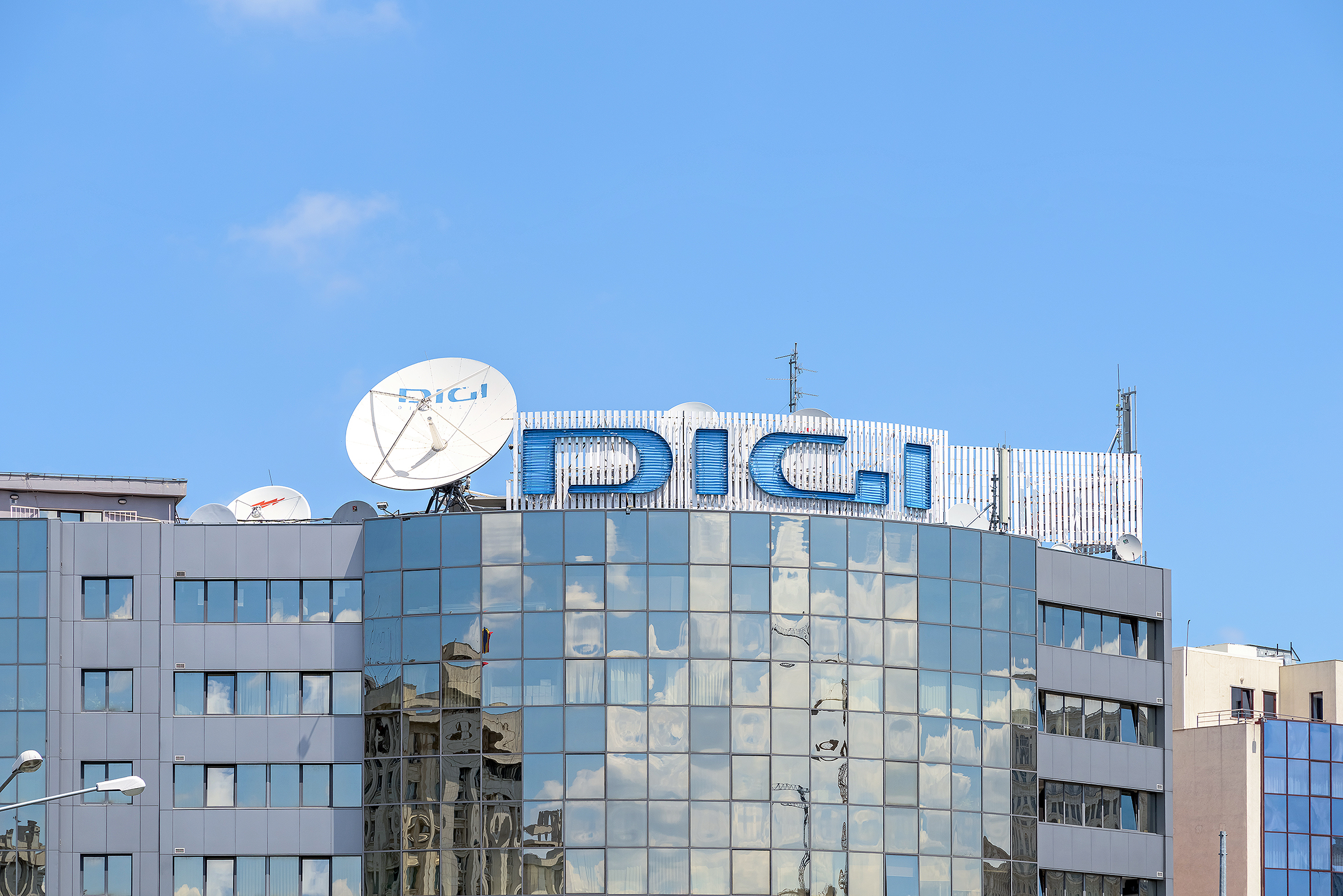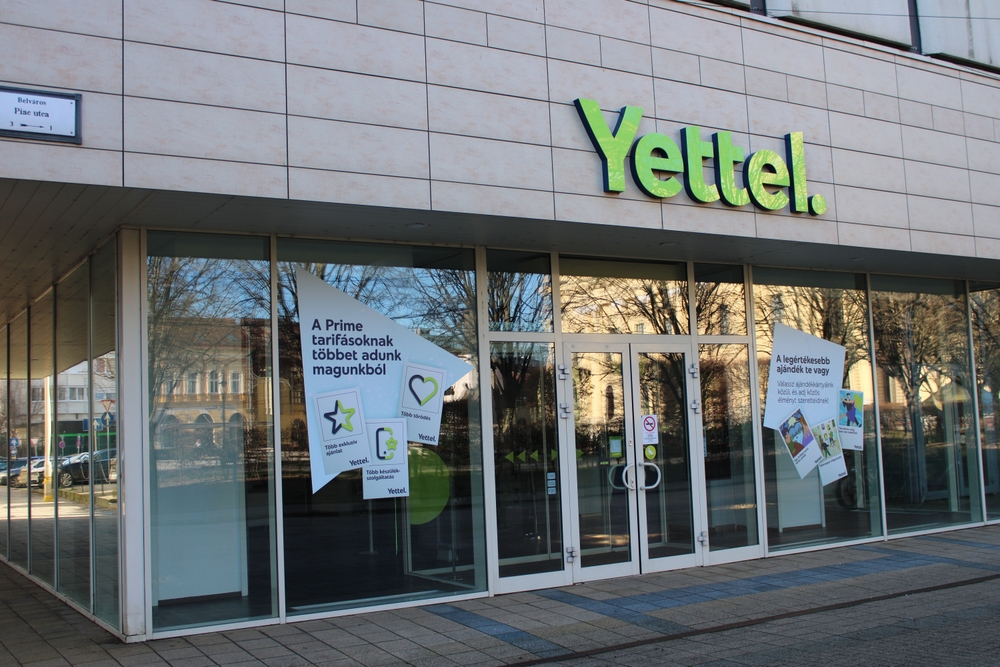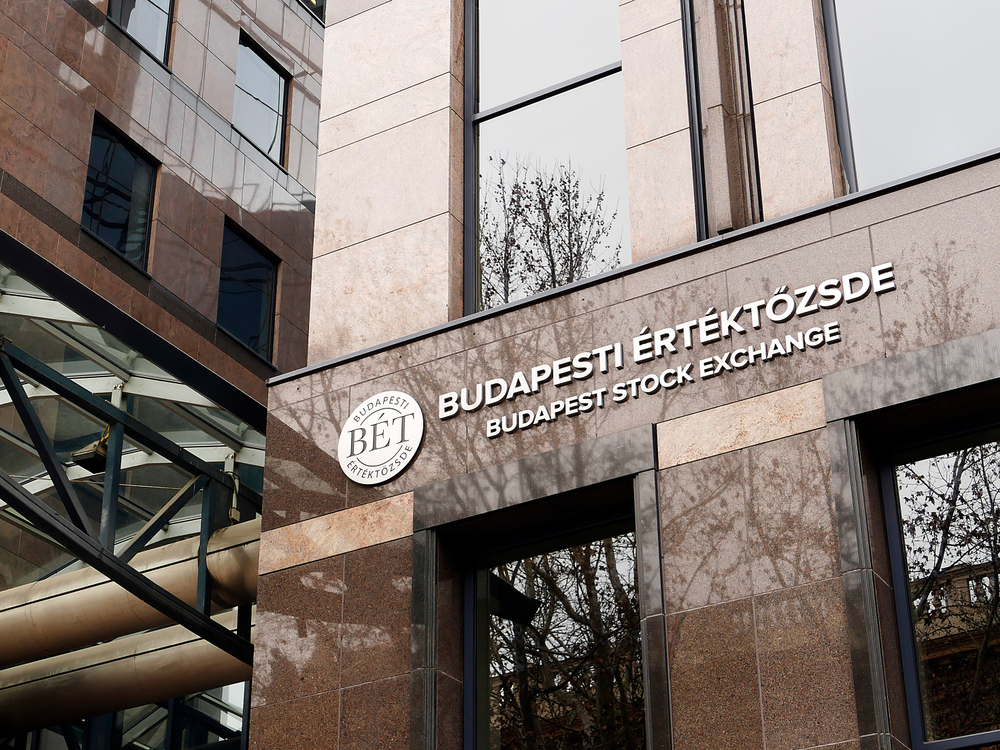Digi Moves Forward with Mobile and Fixed-line

Photo by Radu Bercan / Shutterstock.com
The mobile and the fixed broadband segment are significant sectors for the Romanian-owned Digi, which has been keen to expand its market position in Hungary. However, losing out in the 5G tender was a blow to the telco, and recent debt problems involving the TV2 Media Group are also casting a shadow.
Digi started its operation in Hungary in the mid-1990s as a cable television provider. Shortly after its launch, the company was also providing broadband internet and telephone services to its subscribers.
“The high quality, good value for money services quickly became popular on the market,” says Viktória Ruska, the company’s head of communications. “Ever since, Digi has been all about flexibility, innovation, improvement, and development,” she adds.
Digi’s newest service is DigiMobil, launched in May 2019. It already provides outdoor coverage in
more than 70% of the country.
The company says it has considered subscribers’ convenience in its residential tariff packages announced on January 1 this year: DigiMobil Plusz, DigiMobil Max, and DigiMobil Junior Option.
These include a free-of-charge calling function for Digi and Invitel’s domestic fixed networks and DigiMobile, provided the call is started through Voice over WiFi (VoWiFi). Assuming your smartphone has VoWiFi compatible technology, the system makes it possible to make and receive calls where WiFi with Internet access is available.
Only 19 months after DigiMobil’s launch in May 2019, its 4G availability received the best scores from end-users on independent mobile analytics company Opensignal’s recently published customer experience-based report.
Opensignal analyzed data on major Hungarian mobile services providers collected for 90 days starting in October 2020. The 4G availability category lists the proportion of time users were connected to a 4G network. In winning the category, DigiMobil received a score of 96.7 out of 100 from its customers. It also received “Good Experience” ratings in the Video category.
Digi also intriduced monthly mobile tariffs for commercial services packages from January 1.
Heavy Investments
“Even though the company has been present on the Hungarian broadcasting market for years, the heavy investments started roughly 10 years ago,” Ruska tells the BBJ.
She added that the shift from being a significant satellite operator took place in parallel with the deployment of Digi’s fiber-optic network first in the eastern part of Hungary but soon expanding towards the capital and then the rest of the country.
The company grew in importance and size through its acquisition of Invitel’s retail and small business subscribers in Hungary for HUF 43 billion, a deal announced in July 2017 and initially approved in May 2018.
Arguing that new information had come to light, the Hungarian Competition Authority (GVH) then withdrew its approval, launched a new procedure in November 2018, and finally approved the deal in March 2020.
“In addition to that, with a brave move two years ago, Digi launched its own mobile services, first in test mode and then, from January 2021, commercial packages with very favorable conditions appeared in the company’s portfolio. Now, more than 800 settlements are covered by DigiMobil,” Ruska says.
The company also has a fixed broadband market share of 22.6%, according to a March report by the National Media and Infocommunications Authority (NMHH).
If that represents the positive news for Digi in the past few years, its attempts to join the rollout of 5G services have not gone so well. Digi’s bid to join the 5G tender was rejected in September 2019 by the NMHH under conditions strongly criticized by the company.
Parent company Digi Communications NV said at the time that it considered the move unfair. It also contested the NMHH’s decision to accelerate the 5G spectrum auction procedure and disregard an appeal Digi filed against the rejection of its participation in the auction.
Disappointed
“We are very disappointed that the Authority has decided to proceed with this contentious auction procedure. The Digi Group has applied to the court to suspend the proceedings pending a final decision of the court, and no final decision on this application has been taken to date,” said Serghei Bulgac, CEO of DIGI Communications NV, at the time.
“In our view, the Authority’s action in ignoring our appeal is inconsistent with its mission to ensure conditions of effective competition in the telecommunications market, which would ultimately benefit consumers and users,” Bulgac added.
A different kind of problem became public on June 10, when Media1 ran a story claiming that the TV2 Media Group had withdrawn the distribution rights of Izaura TV and Jocky TV from Digi, citing what it called a significant fee debt. As a result, Digi subscribers are now unable to watch the two soap opera channels.
According to SorozatWiki, a well-known Hungarian portal covering TV series, “This has never happened before in Hungary, and the move could affect millions of people.”
The BBJ asked Ruska about the debts and whether the situation would be resolved any time soon.
“We believe that short service outages can, and unfortunately do, occur in any industry for a variety of technical reasons,” she told the BBJ.
“In all cases, whatever the nature of the failure, we work to ensure that subscribers experience as little of it as possible and that it is resolved as quickly as possible,” she said.
This article was first published in the Budapest Business Journal print issue of June 18, 2021.
SUPPORT THE BUDAPEST BUSINESS JOURNAL
Producing journalism that is worthy of the name is a costly business. For 27 years, the publishers, editors and reporters of the Budapest Business Journal have striven to bring you business news that works, information that you can trust, that is factual, accurate and presented without fear or favor.
Newspaper organizations across the globe have struggled to find a business model that allows them to continue to excel, without compromising their ability to perform. Most recently, some have experimented with the idea of involving their most important stakeholders, their readers.
We would like to offer that same opportunity to our readers. We would like to invite you to help us deliver the quality business journalism you require. Hit our Support the BBJ button and you can choose the how much and how often you send us your contributions.









